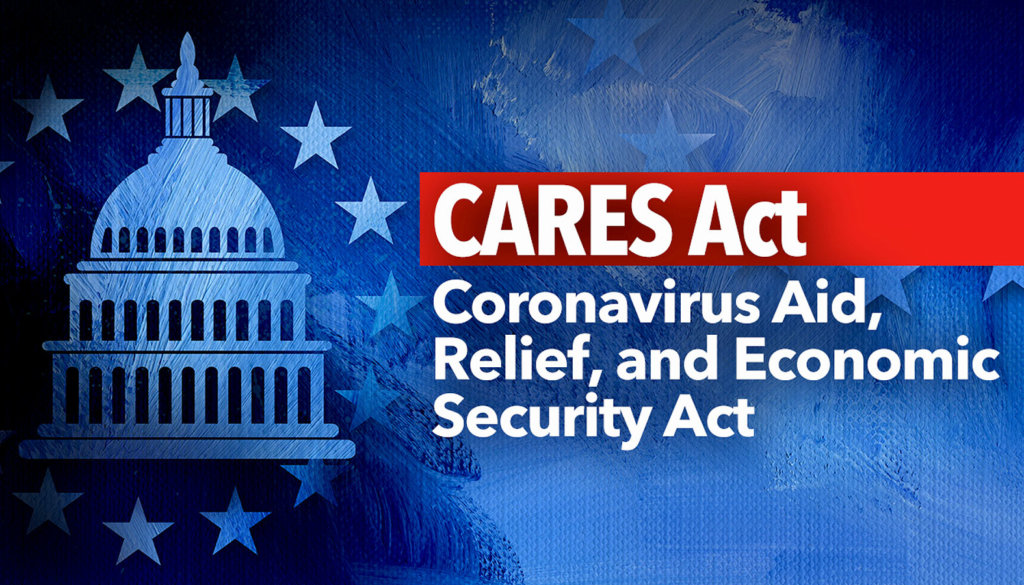
Hey, hello again, everyone. Just trying to keep you updated on the status quo. Now, as you probably know, Congress just passed the largest stimulus package in American history, the Coronavirus Aid, Relief, and Economic Security Act (#CARES). This was done in an effort to combat some of the #pandemic’s harmful economic effects. Since the bill in its entirety is more than 800 pages long, we wanted to summarize some of the important areas that might impact you and give you direction on any actions you may need to take.
One of the largest concerns’ clients are struggling with is the impact #unemployment may have on their ability to make ends meet. While the CARES Act may not prevent workers from being laid off, it does provide assistance in helping many Americans to pay bills and feed their families through cash payments, tax filing/payment extensions and boosts to unemployment benefits.
Here are three ways this bill may likely impact you or someone you know:
1. Stimulus Payments What? Most Americans will receive a #stimulus payment of $1,200 plus an additional $500 for every child 16 or under. Who? Individuals with an adjusted gross income below $75,000 and married couples below $150,000 will receive a payment of $1,200 or $2,400, respectively. Some may get a little more or a little less, depending on income. For every qualifying child age 16 or under, parents get an additional $500. Also, people who don’t normally owe taxes (seniors, low-income individuals and people with disabilities) are eligible for a stimulus payment as well. How? The IRS says it will use your 2019 tax return (or 2018 if you haven’t filed your 2019 yet) to determine eligibility and automatically send the money to those that qualify. If the #IRS already has your bank account information from direct deposits on previous tax returns, you don’t need to do anything. If your direct deposit information has changed or you’ve never given it to the IRS, you’ll need to provide your banking information through a web-based portal that is currently being created. Those who don’t typically file or pay taxes will need to file a ‘simple tax return’ providing banking information, filing status and number of dependents. Caveat: If you haven’t received your direct deposit or check yet you can find more information here: https://www.cnet.com/personal-finance/you-missed-the-irs-stimulusdirect-deposit-deadline-dont-worry-here-is-what-happens-now/
2. Expanded and Extended Unemployment Benefits What? The #stimulus bill increases the duration of unemployment benefits, guarantees a $600 boost to weekly checks for the next four months and extends jobless benefits to previously ineligible workers. Who? Anyone laid off or furloughed, or anyone who quit their job as a direct result of COVID-19 is eligible. Unlike before, this legislation also extends to contractors, gig workers (like Uber and Lift drivers), freelancers and the #self-employed. How? File an unemployment claim as soon as possible in the state where you worked. More information on how to file for unemployment in your state can be found on https://www.careeronestop.org/.
3. Federal Tax Deadline Extension What? The IRS is extending the federal income tax filing due date to July 15, 2020, instead of the usual April 15, without penalty or interest. While many states are following suit in delaying their state tax deadlines, not all deadlines have been moved to July 15, 2020. Who? This #deferment applies to all taxpayers, regardless of the amount owed, including individuals, trusts and estates, and those who pay self-employment tax. How? This is an automatic extension. Taxpayers are not required to file any additional forms or notify the IRS to qualify. More information on this IRS tax payment and filing relief effort can be found on the news release section of the IRS website.
While no one truly knows just how extensive the impact of this economic downturn will be or how long it may last, the CARES Act is essential in leading us toward a healthy path to #recovery. As always, please reach out with any questions you may have. Let’s get through this together. PLEASE NOTE: The information being provided is strictly as a courtesy. We make no representation as to the completeness or accuracy of information provided at these websites.
